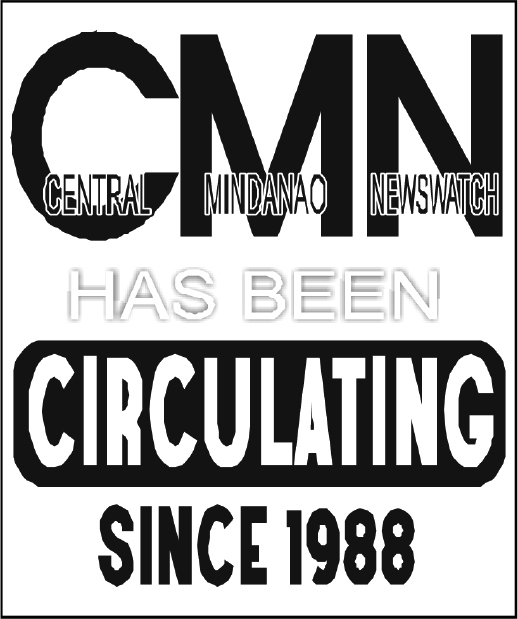Local
0

Share this post?
CAGAYAN DE ORO CITY — A total of 256 barangays in the provinces of Lanao del Norte, Misamis Occidental, and Bukidnon have retained their drug-cleared and drug-free statuses, following the approval of their applications by the Regional Oversight Committee on Barangay Drug Clearing (ROCBDC) on Aug. 27
The ROCBDC, chaired by the Philippine Drug Enforcement Agency (PDEA)-10, approved the applications of 21 barangays in Baungon and Impasug-ong in Bukidnon; Lopez Jaena, Sapang Dalaga, and Concepcion in Misamis Occidental; and Kauswagan, Matungao, and Iligan City in Lanao del Norte to retain their drug-free status.
The committee also approved 235 barangays from various municipalities in the three provinces to retain their drug-cleared status.
Barangays with identified drug personalities are classified as “drug-cleared” after completing the requirements under the barangay drug-clearing program. Barangays considered “drug-free” have no known drug personalities and have undergone verification processes to maintain that classification.
PDEA Regional Director Alex M. Tablate said the retention of these statuses reflects the continued coordination between local and national government agencies addressing illegal drug activities, in line with the Marcos Jr. administration’s current strategy.
“Ang essence aning retention is to check if these barangays were able to maintain their status, and to find out if there are newly identified drug personalities. This year, ato na pud na silang gi-validate kay naa man tay continuous monitoring with the members sa barangay [committee],” Tablate said.
(The essence of this retention process is to check whether these barangays have maintained their status and to determine if there are any newly identified drug personalities. This year, they were revalidated as part of the continuous monitoring being conducted in coordination with the barangay committee members.)
Tablate said that, as far as PDEA is concerned, the agency’s campaign against illegal drugs has remained consistent. He explained that in implementing Republic Act No. 9165, they continue to observe human rights. He emphasized that the enforcement of drug laws is carried out with consideration for the preservation of human life.
“Ang implementation sa mga balaod nato (the implementation of our law), when it comes to law enforcement, naa gihapon diha ang preservation sa kinabuhi sa tawo (there is still a regard for human life),” he added.
A community-driven feat
The retention of statuses is attributed to the work of Barangay Anti-Drug Abuse Councils (BADACs) in policy enforcement and community-based rehabilitation, supported by ROCBDC member agencies, including the Department of Health (DOH), the Department of the Interior and Local Government (DILG), and the Philippine National Police (PNP).
DOH Regional Substance Abuse Program Coordinator Ma. Dolores Mercado cited BADAC’s role in demand reduction through measures such as random drug testing and rehabilitation support for persons who use drugs (PWUDs), including those who have relapsed.
DILG-10 Local Government Operations Officer Rezza T. Docallos urged BADAC members to participate in capacity-building programs such as Strengthening Institutional Capacities of Barangay Anti-Drug Abuse Council (SICAP-BADAC).
In Baungon, Bukidnon, Barangay Lingating’s Punong Barangay Rodelio Dacer said the BADAC plays a central role in sustaining local anti-drug efforts.
“Kauban sa among konseho ug BADAC, naningkamot gyud nga ma-sustain ni (Together with our council and BADAC, we are really working hard to sustain this),” Dacer said, noting the significance of maintaining drug-cleared status in encouraging investment in the municipality.
In Clarin, Misamis Occidental, Barangay Pan-ay Secretary Ruth Villarin said their initiatives include house-to-house visits for PWUDs and intervention activities such as Bola Kontra Droga with the local police.
“Para among PWUDs naa pud sila coordination sa PNP para dili rapud sila mahadlok (So that our PWUDs also have coordination with the PNP and won’t be easily afraid),” Villarin said.
Call to action
Tablate called on families to take a proactive role in preventing drug use.
“The role of the family is very crucial. Ang family man gud, mao na ang first line of defense, so diha pa lang tagaan na nato og pagtagad, nga at least ma-educate na [ang mga bata] with regard aning problema nato sa illegal drugs, so that by the time nga mogawas sila sa ilang balay, dili sila basta-basta ma-dani,” he said.
(The role of the family is very crucial. The family is the first line of defense, so it is important for us to really focus on educating our children on this drug problem, so that they are not so easily persuaded the moment they go out and explore on their own.) (Gabriel D. Andres/Henniequel Shayne G. Acobo/PIA-10)
Latest Article


